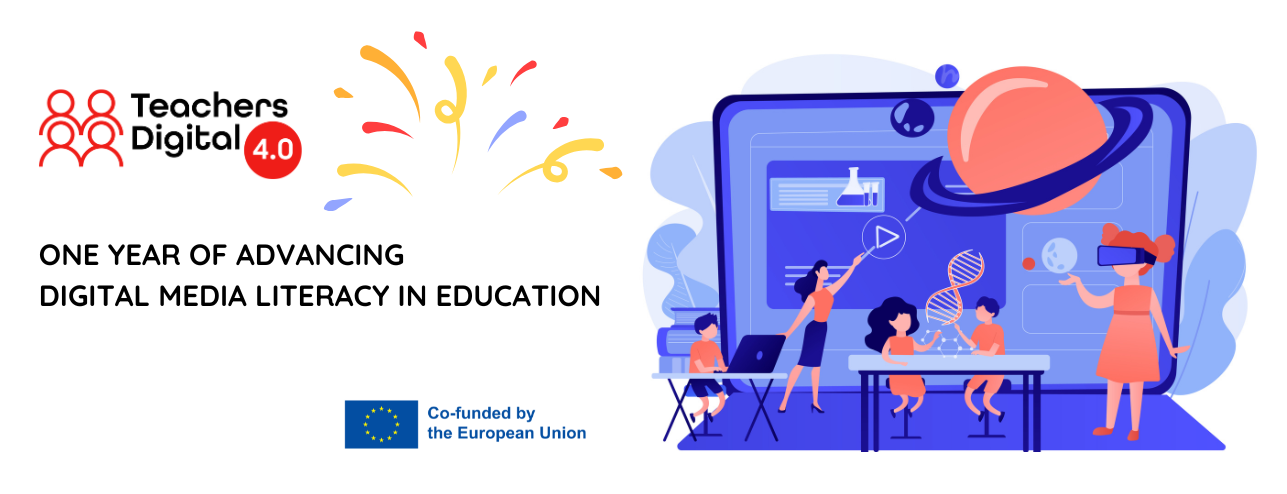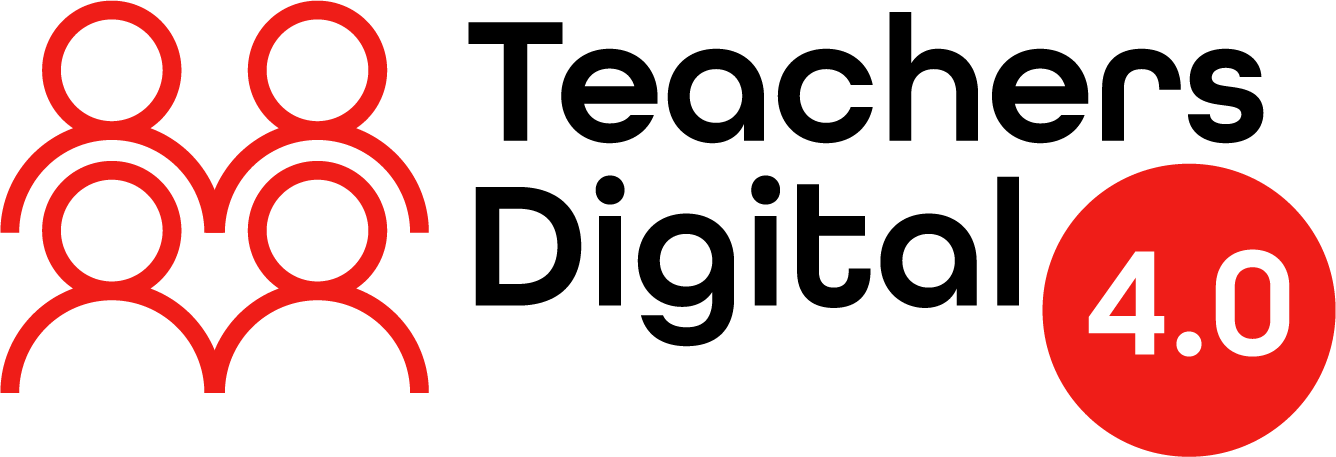
The month of December marks the first anniversary of our project and we would like to take this opportunity to celebrate our progress with you!
The Teachers 4.0 Digital project aims to equip teachers with the necessary knowledge and skills to empower their students to think critically, make informed choices online and stay safe whilst continuously building their resilience in the digital world. The project partners work together to achieve the following objectives:
- Development of a comprehensive curriculum that will guide teachers and educators in the ways they may teach their students the necessary skills to thrive in the digital age.
- Design of a University course on the topic of combating disinformation and digital literacy: In addition to integrating elements of digital literacy into all initial teacher education courses, a specific course on combating disinformation, building resilience, as well as digital and information literacy is developed as a separate course.
- Development of an e-Learning platform for the upskilling of thousands of primary and secondary school education teachers and educators to offer the Teachers 4.0 Digital course in a blended learning format in six European languages: Bulgarian, English, Greek, Italian, Polish and Romanian.
A curriculum for digital media literacy
The first year of our project was dedicated to the development of a curriculum containing teaching, learning and assessment material with practical examples of lesson plans, as well as key terms and definitions. The curriculum corresponds to a total of sixty (60) training hours (30 hours for direct instruction and 30 hours for individual study) consisting of the following modules:
- Introduction
- Disinformation: What are we talking about?
- More key terms and definitions
- Setting the Scene: Teaching and learning in the digital school environment
- Assessing and evaluating digital literacy in schools
- Explore the key media practices of children and students
- Teaching digital media literacy and disinformation
- Building digital media literacy competences in the classroom and school: becoming digital citizens
- Students in all their diversity
- Practical examples of lesson plans
Our curriculum is now ready in English and will be released by the beginning of next year in all project languages (Bulgarian, Greek, Italian, Polish and Romanian).
University courses
Our two partners University of Palermo (UNIPA) and National and Kapodistrian University of Athens (NKUA) started implementing the Teachers 4.0 Digital University course in their universities. Here are their first insights from this elective course that attracted 170 students so far:
– The young pre-service teachers who have just started the course has a great interest and enthusiasm, acknowledging its usefulness for their future collaboration with young students who are surrounded with social media.
– It is very much inspiring to see their strong position towards social media and digital media use, with a motivation to deal with disinformation and misinformation to take a leading role in empowering their future students to do the same.
E-Learning Platform
Development of our e-learning platform is also going at full speed: During the last few months, the project partners brainstormed about how to offer the most accessible and user-friendly capacity-building experience. We are excited to launch our platform in the coming months to upskill the primary and secondary school education teachers and educators in six European languages.
What’s next?
The ultimate aim of the project is the delivery of a large-scale upskilling activity involving over 2.000 in-service teachers/educators and teachers-to-be in the countries involved to help them:
- acquire knowledge and skills related to digital literacy,
- update their knowledge on contemporary media used by children and adolescents,
- change their attitudes towards the role, importance and future implications of contemporary media
- strengthen their commitment to promote digital literacy in their classrooms
Our project aims to create a wider impact by initiating a public debate with the involvement of all relevant stakeholders, contributing to a policy reform on digital literacy education at national and European levels, and providing a comprehensive capacity-building framework for teachers on issues relating to tackling disinformation and promoting digital literacy.
Stay in touch
Interested in promoting digital media literacy in primary and secondary schools? Subscribe to our newsletter and follow us on LinkedIn, Facebook, Instagram to hear about our future activities and resources!






